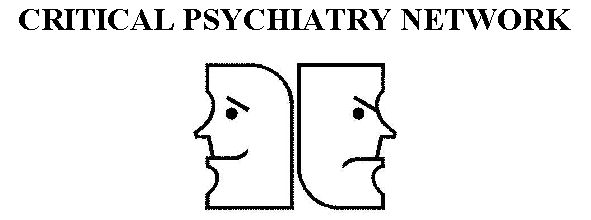

Reprinted with permission from Openmind © Mind (National Association for Mental Health)
POST-PSYCHIATRY
Mental Health Legislation: Time for a real change
Pat Bracken and Phil Thomas
In our earlier articles we argued that psychiatry has failed to deliver its promises, and that a new debate about the limitations of psychiatry is required. The purpose now is to stimulate discussion about the legitimate sphere of influence of the profession, involving a wide audience. Mental health legislation is an important historical symbol of the power of psychiatry, in which doctors play a key role in the process of compulsory admission. Here, we argue that the first step in limiting the boundaries of psychiatry would be to remove doctors from the assessment processes that lead to compulsory admission.
Psychiatristsí power in these assessments is obvious. Only one medical recommendation is required for section 5(2) or section 4. Two doctors, an approved psychiatrist and, normally, the patientís G.P., are involved in admitting a patient to hospital on section 2 or 3. An approved social worker must agree with the recommendations, and apply to the hospital managers for the patientís compulsory detention. An important aspect of the social workerís role is to balance medical opinion, but, as Hewitt has observed, G.Pís. often slavishly follow the psychiatristís recommendation, making it difficult for the social worker to disagree. While approved social workers go through extensive training, some psychiatrists have pointed out that their own professionís knowledge of mental health act legislation is unsatisfactory,. This in itself is not an argument for taking psychiatrists out of the assessment process. There is a more powerful ethical argument.
Under the Tories, government policy for mental health was often driven by lurid newspaper headlines. The debate about community care became couched in terms of compulsion and coercion, a tendency regarded by some as Ďanti-therapeuticí, and in contravention of Article 5 of the European Convention on Human Rights. Nigel Eastman2 points out that an important principle in mental health legislation is that the law should balance the patientís right to autonomy with the doctorís duty of care. In addition, patientsí civil rights must be balanced against societyís right to protection. As a number of groups continue to argue for more coercive powers, it is worth considering these issues in greater detail. Under the Mental Health Act, a personís liberty can be taken away not only because of what they have done, but because of what they think or say. Their liberty is removed so that they can receive Ďtreatmentí. There are many conflicts here. The need to protect patientsí civil liberties and autonomy must be balanced against possible risks of harm to others or to self. Eastman points out that compulsory Ďtherapeuticí interventions aimed at reducing these risks must be balanced by the resources available to mental health services. According to a "principle of reciprocity", someone should have their civil liberties and autonomy restricted only if there are sufficient resources to ensure that they receive good quality care. Indeed, the absence of adequate resources renders staff unable to care properly for detained patients, and thus reduce risks to self and other. Most parties in the debate about community care agree on one thing: that mental health services are inadequately resourced.
Psychiatrists play a key role in the delivery of mental health services. They regard themselves, and are regarded by others, as leaders of the multi-disciplinary teams whose job it is to deliver care. The problem is that doctors are trained to intervene and often appear to have a Ďcompulsioní to treat. As Allan Beveridge has pointed out, doctors feel that they simply must do something to help. Respect for autonomy, individual rights and civil liberties are nowhere a part of medical training. This patriarchal tendency to intervene is even more likely given the current climate surrounding community care. Even when there are inadequate resources for care, doctors may act to remove someone to hospital. Once there, Ďtreatmentí may amount to little more than surveillance and medication. This means that the most important aspects of patientsí problems remain unresolved. In addition, the involvement of psychiatrists in compulsory detention leads to conflict. Curtailing someoneís civil liberties has serious implications for the patientís ability to trust the psychiatrist.
In fairness, many psychiatrists are aware of the futility of this, and are increasingly seeking user involvement in the delivery and planning of services as a means of trying to improve the situation . This is encouraging, but there are limitations to what the profession can achieve in the way of change. Many European countries recognise the problems that arise if psychiatrists are given dual roles, doctor and imprisoner. They either keep these roles apart, or do not involve psychiatrists at all in the processes of compulsory detention. In Britain, we argue that doctors must be prevented from exercising their compulsion to treat when treatment is not necessarily the answer, or when inadequate resources means that appropriate care impossible. Mental health act reform should remove the medical profession from the process of compulsory detention. Such assessments are better carried out by an approved social worker, a solicitor, and a lay-person. This would achieve a fairer balance between the conflicting interests of societyís right to protection, the patientís civil liberties, and the principle of reciprocity. Finally, it opens up opportunities for service users, as lay members, to participate in these processes. This change will not in itself reduce the power of psychiatry, as this is constituted largely through the domain of its knowledge. However, in our minds, it would be a step in the right direction